Inside the 'heartbreaking' dog meat farm where up to 5000 animals were slaughtered
WARNING – DISTRESSING CONTENT: Horrific images have emerged after a dog meat farm alleged to have been butchering family pets was shut down.
Dr Katherine Polak, who is a veterinarian at animal welfare charity Four Paws, first heard about the slaughterhouse from local restaurants who used it as a supplier.
The first thing she saw at the rural property in the Takeo province, just outside of Phnom Penh, was a dying tree with caged dogs underneath it.
“The tree was apparently in full bloom about a year ago, but it’s just been dying from all the blood and urine and faeces,” she said.

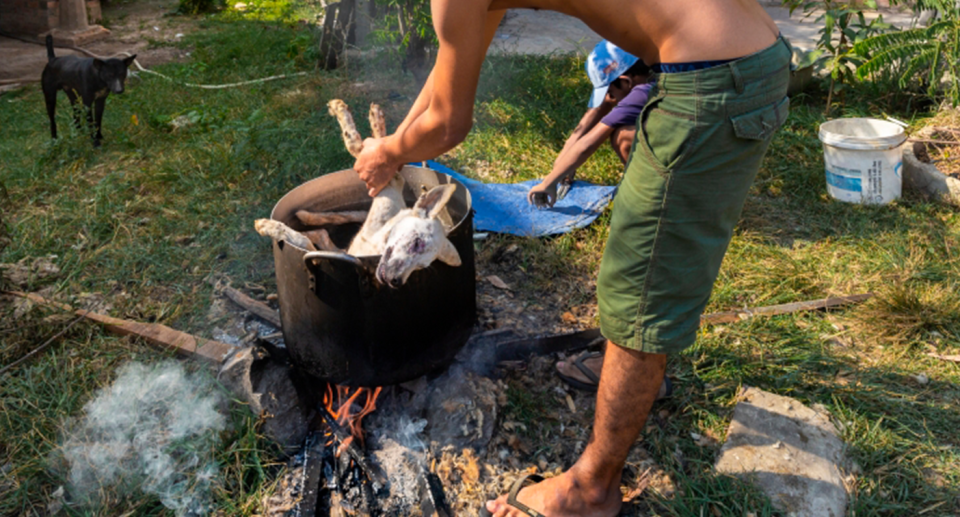

“There’s a smell, there’s a stench to it, it’s really heartbreaking.”
Dr Polak told Yahoo News Australia every day dogs were brought to the facility and herded into a holding pen where they awaited death.
“The farmer would hit them over the head and then put their back legs into the cage,” she said.
“So the other dogs would watching this, waiting for their turn.
“And then he stabs them in the throat, allows them to bleed out a bit and then he puts them in a pot of boiling water.”
Dr Polak said she was unable to describe the emotion she felt as she was in such a state of shock.
The Cambodian slaughterhouse was processing between 2000 and 5000 dogs a year, according to Four Paws.

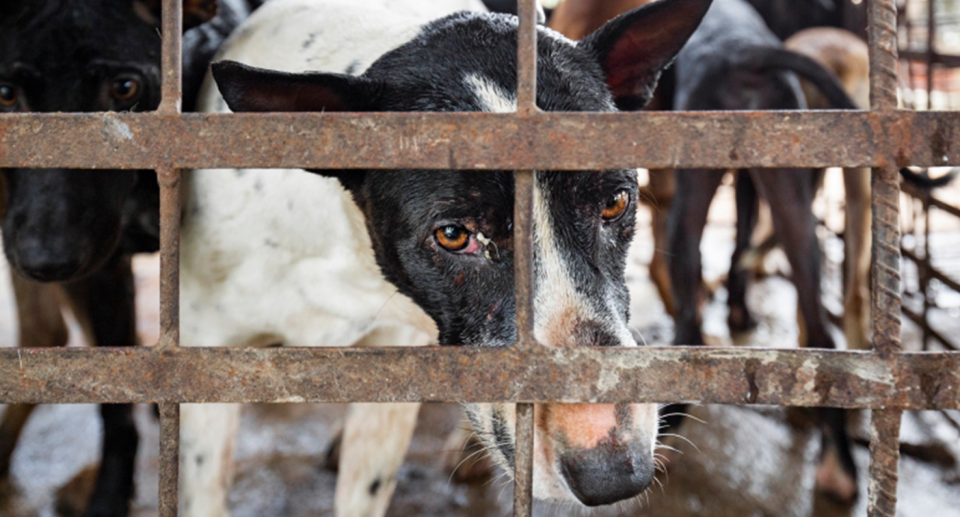
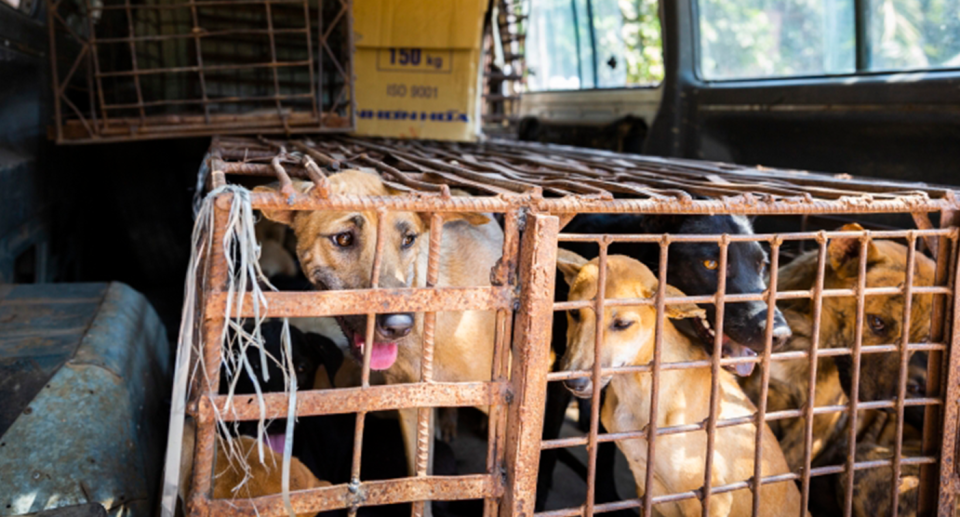
Selling dogs for their meat often attracts a social stigma in South East Asia and Dr Polak has heard stories of the farmers being beaten to death by villagers in neighbouring Vietnam.
The farmer at the Takeo province facility contacted Four Paws, pleading them to help him get out of the trade.
On October 27, Four Paws and Animal Rescue Cambodia entered the property and seized the surviving 10 dogs.
These included two animals the farmer had kept since they were puppies as good luck charms.
The damaged canines had been confined to cages and witnessed thousands of other dogs being killed, butchered and cut up to be used as bar snacks.


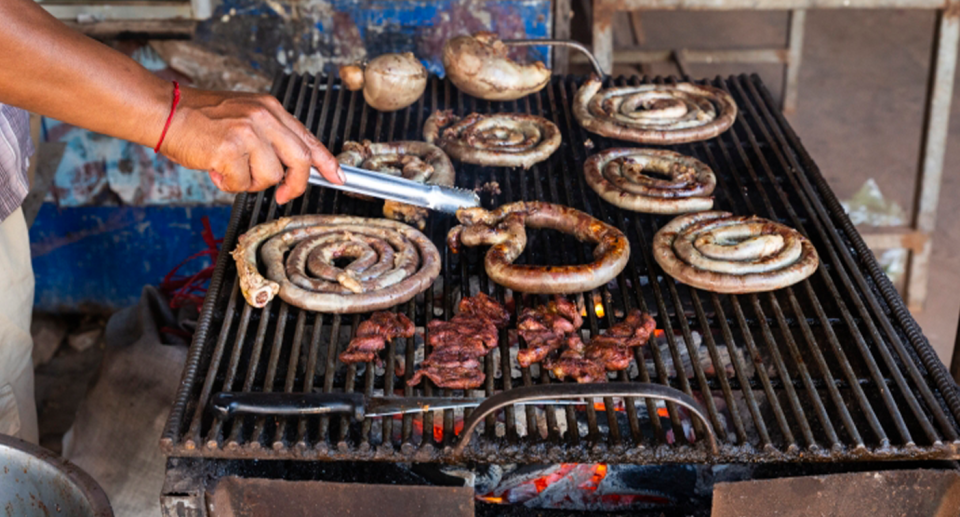
Working to shut down the farm, Four Paws purchased a rice paddy for the farmer as an alternative income source and he has now pledged never to enter the dog meat trade again.
While the trade is largely conducted underground and numbers hard to estimate, Dr Polak believes annual dog slaughter numbers amount to five million in Vietnam, three million in Cambodia and one million in Indonesia.

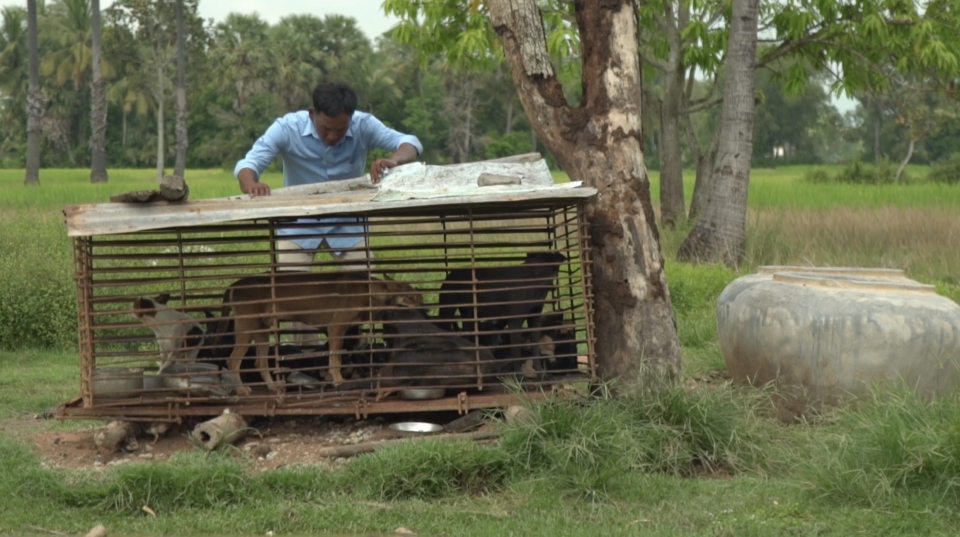
With rabies endemic to South East Asia, dog meat consumption plays a role in the spread of the disease to humans, with 800 people dying of it every year.
Dr Polak is working across the region to help eliminate the trade and educate local communities about the risk of consumption.
Do you have a story tip? Email: newsroomau@yahoonews.com.
You can also follow us on Facebook and Twitter, download the Yahoo News app from the App Store or Google Play and stay up to date with the latest news with Yahoo’s daily newsletter. Sign up here.



